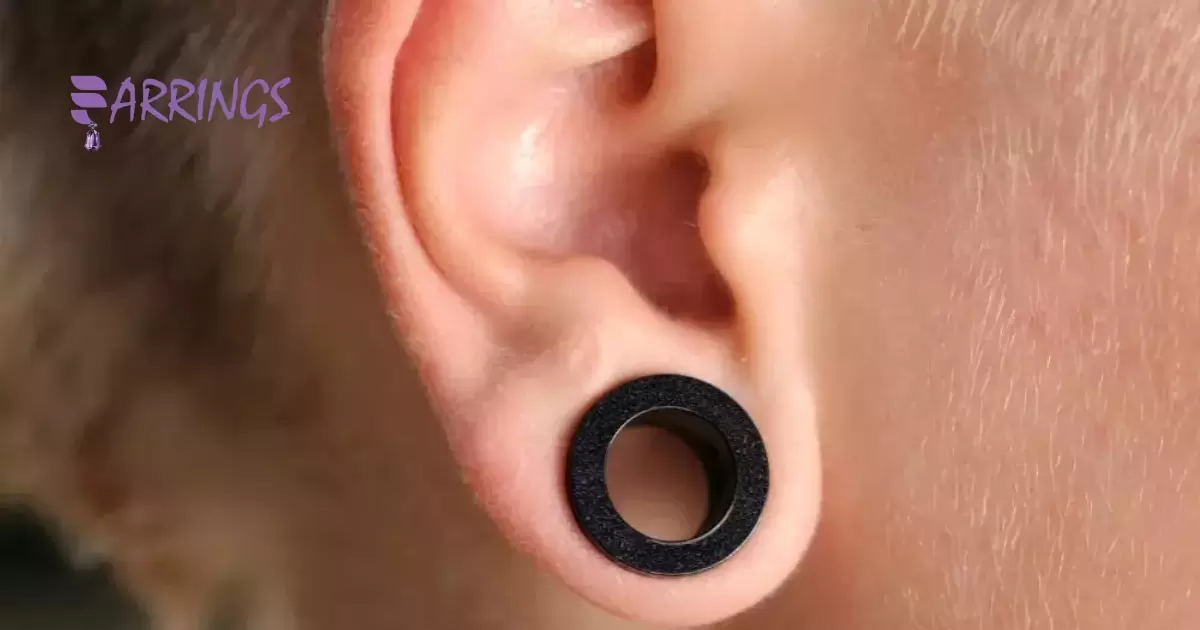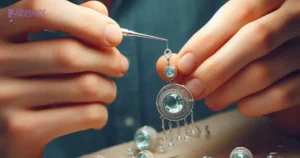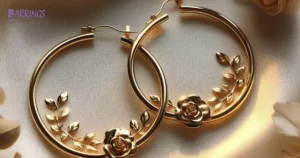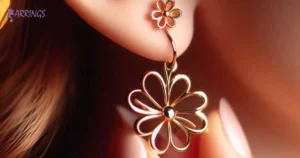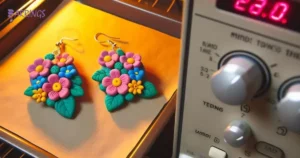Earring holes can close up overnight if they are new piercings. The skin starts healing right away and can close the puncture within hours. To prevent closure, new earrings must be worn continuously for 6-8 weeks until the piercing fully heals. After that, earring holes may shrink but won’t completely close up if earrings are out overnight.
You just got your ears pierced and love your new earrings. But now you’re worried Will My Earring Holes Close Up Overnight? It’s a common concern for new piercings. The skin starts healing quickly and can close the puncture within hours.
Earring holes usually don’t close overnight. But it’s crucial to care for them. Regular cleaning and gentle handling help maintain ear health. Keep your earrings in, but listen to your body’s signals, especially if you wear measure hoop earrings, as they might require extra attention.
Key Takeaway
- Earring holes closing overnight is improbable but depends on individual healing.
- Prolonged wear may lead to irritation and discomfort.
- Leaving earrings overnight may increase infection risks; prioritize a healthy ear care routine.
- Sleeping with earrings can cause tears, emphasizing the need to remove them before bedtime.
- Prolonged wear may create pressure points, leading to soreness and shape distortion.
What Causes Earring Holes To Close Up Overnight?
Ever wondered why earring holes might close up overnight? It’s mainly your body’s natural healing process. The rapid closure is rare but possible due to skin healing tendencies. Yet, proper care can keep them open; gentle cleaning and regular earring use aid in preventing sudden closure.
Consistency is key for maintaining ear piercings, including the 2nd ear piercing. Regularly wearing earrings prevents closure overnight, ensuring healthy piercings. Pay attention to your body for optimal care.
Earrings Affect The Longevity Of Ear Piercings
The duration your ear piercings last is influenced by the earrings you choose. The weight and material play a crucial role in this. Heavy earrings have the potential to stretch the holes over time, and materials like nickel can lead to irritation.
To ensure a comfortable and lasting piercing experience, opt for lightweight, hypoallergenic earrings that won’t strain your piercings. Be mindful of how earrings move. Excessive swinging or twisting can irritate piercings, affecting their longevity. Regular cleaning is also crucial for overall ear piercing health.
Keep your earrings and pierced areas clean for healthy piercings. Choose earrings wisely and care consistently. What are earrings without piercing called? Consider clip-on or magnetic earrings for a stylish alternative.
Materials Prevent Earring Holes From Closing Overnight
| Material | Description |
| Surgical Stainless Steel | Hypoallergenic and resistant to corrosion, commonly used for earrings to minimize irritation. |
| Gold | Non-reactive metal, less likely to cause allergies, and maintains its quality over time. |
| Titanium | Lightweight, durable, and hypoallergenic ideal for preventing irritation and closure. |
| Platinum | Precious metal with high corrosion resistance, suitable for long-term wear without issues. |
| Bioplast | Flexible and bio-compatible material, reduces pressure on the piercing, preventing closure. |
Certain materials play a vital role in preventing earring holes from closing overnight. Opt for high-quality metals, like gold or titanium, to avoid any adverse reactions. These materials promote stability in the piercing, reducing the likelihood of rapid closure.
Silicone or Teflon materials adapt to your body’s movements, maintaining open earring holes. Choose wisely for long-lasting piercings. Keep in mind that helix piercing healing time varies based on healing abilities, aftercare, and jewelry type.
Do Earring Styles Impact The Likelihood Of Earring Holes Closing Up?
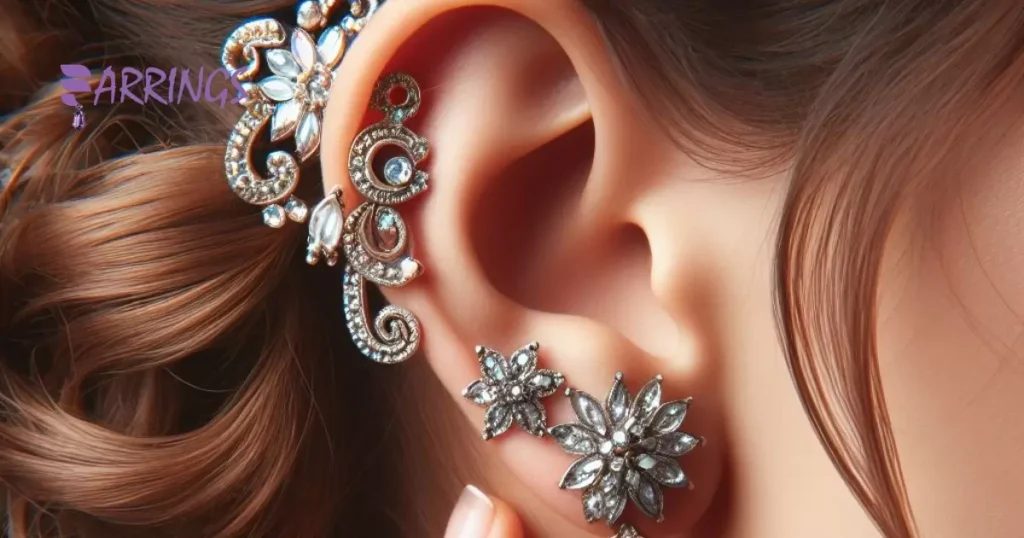
The style of your earrings can indeed affect the likelihood of your earring holes closing up. Hoops and dangly earrings pose a higher risk due to increased movement.
Choose stud earrings or small designs to keep piercings comfortable and long-lasting. Also, consider the cost of a helix piercing.
Practices For Preventing Earring Holes From Closing Overnight
Preventing earring holes from closing overnight requires consistent care and mindful practices. Regularly wear your earrings, as this helps maintain the openness of the pierced holes.
Choose earrings made of quality materials to avoid irritation and ensure comfort. Opt for studs or small hoops to minimize movement during sleep, reducing the risk of holes closing.
Maintain good hygiene by cleaning both earrings and pierced areas regularly. Apply a gentle solution to prevent infections and support the health of your ear piercings. Following these simple practices can help preserve your earring holes and keep them open overnight.
Specific Earring Types Recommended For Overnight Wear
Certain earring types are ideal for overnight wear, ensuring both style and comfort. Opt for small studs or huggie hoops to minimize discomfort during sleep. Avoid large, dangling earrings that might cause irritation or discomfort when pressed against the pillow.
Choosing earrings made from hypoallergenic materials can further enhance your overnight experience, minimizing the risk of any adverse reactions. Stick to these earring types for a good night’s sleep without compromising your style.
What Are The Risks Associated With Leaving Earrings Overnight?
- Leaving earrings overnight poses risks skin irritation and discomfort may result.
- Increased infection risk accompanies prolonged wear, affecting overall ear health.
- Sleeping with earrings may cause painful tears in the earlobe, necessitating medical attention.
- To mitigate risks, form a habit of removing earrings before bedtime, promoting ear health.
- Prolonged wear can create pressure points, leading to soreness and potential damage.
- Increased moisture retention overnight may contribute to fungal or bacterial infections.
- Continuous pressure on the earlobe can distort the shape of the piercing over time.
- Allowing your ears to breathe overnight aids in preventing accumulation of debris and bacteria.
- Regular removal of earrings facilitates proper cleaning, reducing the risk of infection and irritation.
Safely Maintain Earring Holes Without Causing Irritation Or Infection
To safely maintain your earring holes and avoid irritation or infection, prioritize cleanliness. Regularly clean both your earrings and pierced areas using a mild solution. Choose hypoallergenic earrings to minimize the risk of irritation.
A little care goes a long way in keeping your ear piercings happy and healthy. Also, be mindful of the earring weight heavy ones may stretch the holes over time. Allow your piercings to breathe occasionally by going earring-free. This helps in preventing unnecessary stress and promoting overall piercing well-being.
My Earring Holes Close Up Overnight Hoop
Earring holes closing overnight, especially with hoops, is unlikely but possible. The size and weight of the hoop may affect the closure process.
Larger hoops may put more pressure on the holes, increasing the chance of overnight closure. Everyone’s body reacts differently, so consistent care is key to maintaining your ear piercings.
How Long Can You Leave Earrings Out After 1 Year?
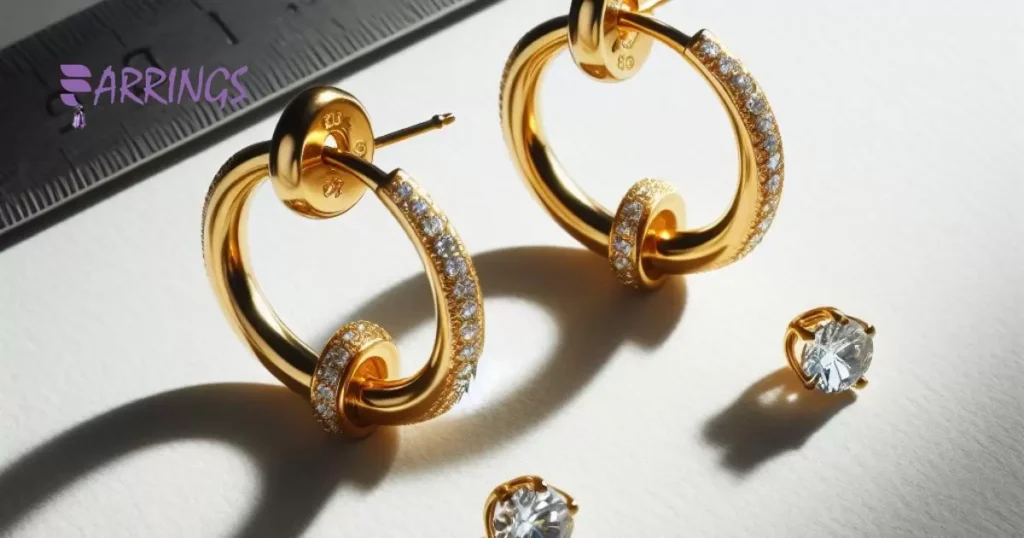
After a year, it’s generally safe to leave earrings out for a short period. Don’t push it. Longer durations may lead to hole closure.
Listen to your body. If discomfort arises, reinsert earrings promptly to maintain piercing health.
Ensure your earrings are easy to insert, and avoid forcing them in. If in doubt, consult a professional piercer for guidance on maintaining your well-healed piercings.
Frequently Asked Questions
Is it OK to leave earrings out overnight?
Yes, it’s generally okay to leave earrings out overnight for short periods without causing issues.
Will my earring holes close up if I sleep without earrings?
No, sleeping without earrings typically won’t cause your earring holes to close up.
How quickly do ear piercings close up?
Ear piercings can begin to close up in a matter of hours, depending on individual healing rates.
Conclusion
While overnight closure is unlikely, swift reactions occur due to the body’s healing nature. The key lies in consistent care, choosing lightweight, hypoallergenic earrings, and avoiding prolonged gaps.
Consider your earrings as allies in maintaining those ear piercings, but listen to your body’s cues. Excessive movement or neglecting regular cleaning may compromise the longevity of your ear piercings. Thoughtful selection and unwavering care ensure your ear adornments stay in place for the long haul.
